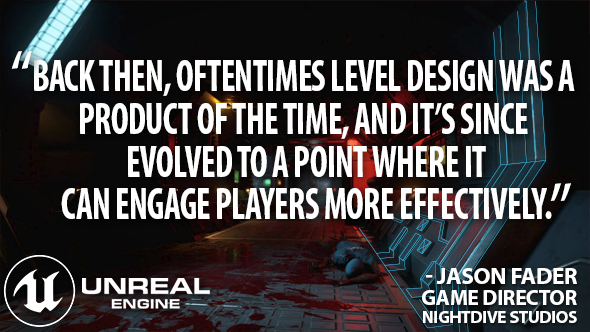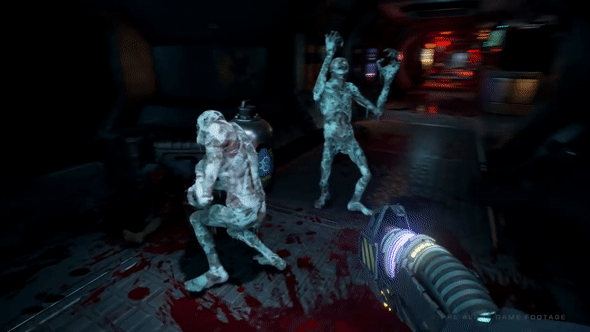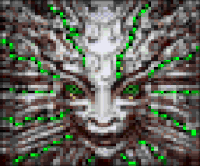LESS T_T
Arcane
- Joined
- Oct 5, 2012
- Messages
- 13,582
![The Year of Incline [2014] Codex 2014](/forums/smiles/campaign_tags/campaign_incline2014.png)
"Why 'System Shock' Matters", with some quotes from Warren Spector, Paul Neurath, and Chris Avellone.: http://www.glixel.com/news/why-system-shock-matters-w483835
I quote parts somewhat related to SS 3 and SS reboot:
I quote parts somewhat related to SS 3 and SS reboot:
That next level, of course, did not include living humans. As Spector has often said, he, Church, and Neurath’s collective distaste for the "dialogue trees" of the day caused them to leave no survivors on Citadel Station for the player to interact with. While it seemed like a minor point at the time, this decision has inspired countless imitators, from Dark Souls to Bioshock – perhaps even presaging the now-popular walking simulator genre. To Spector, it was just a solution to a problem. "Honestly, we just couldn’t think of anything better to do. We had no idea how to make a better conversation system. So, somebody eventually said ‘let’s just kill them all.’ It was a practical decision that ended up working out really well creatively. But, working on Shock 3 now, I’m wrestling with that. I’m not sure if we should have more living NPCs or not."
As Neurath and Spector themselves admit, these early efforts to maximize suspension of disbelief seem rather primitive today, but they irrevocably altered player’s perceptions of what was possible in these emerging artificial worlds. To Chris Avellone – famed writer behind such titles as Fallout: New Vegas and contributor to Arkane Studio’s recent System Shock-like Prey – at the time, to an outsider, the scope of Shock’s achievement was unfathomable, if a bit muddled. "They did a truly amazing number of things," he says. "Even the game’s ‘help’ function was totally unheard of. The game told you what everything did, and what everything was. Not to mention SHODAN. Antagonists weren’t that aggressive back then – or as direct."
This unparalleled depth came with a cost, however. As Spector himself rudely discovered upon returning to the original two decades later, between its unwieldy controls and bloated interface, Looking Glass’s creation is far from accessible to those of us who weren’t exactly rocking a Pentium in 1994. "It’s just really hard to go back to now," says Avellone. "A lot of the thrill comes from the dungeon design, combined with SHODAN’s reactivity. It did an amazing amount of things, but people remember the way it made them feel, and not so much the actual game itself."
In late 2015, developer Night Dive Studios – best-known for reclaiming and republishing "abandoned" games, like the Wizardry series and 7th Guest – announced their intention to pursue a "reimagining" of the original System Shock, aiming to wipe off some of the layers of dust that the game has accumulated over the years. And, as you might expect, industry luminary Avellone was one of their first hires. "Honestly, I’m thrilled to be a part of it," he says. "I love sci-fi, but I so rarely get a chance to do it." Don’t call it a “remaster," though – Avellone says that it’s more a reboot than anything else. "We’re taking the original storyline and expanding it to reflect the new ways you can play – the combat path, the hacking path, the stealth path. Part of the thrill of the first System Shock is that SHODAN doesn’t know you’re there at first. We’re aiming to surprise the player by taking that a little further."
Though Spector and Neurath aren’t explicitly involved, they’re both enthused about it. "It’s nice to see that now, twenty-three years later, with the reboot, and even Prey, that people are still influenced by what we did back then," says Neurath. Spector takes a bolder tack: "My heart tells me that if you take the original Shock and modernize it, it’ll be just as good as any immersive sim that’s come since. Well, I guess now we’ll find out, won’t we?" He lets out a hearty laugh. The duo are more focused on their own efforts, and for good reason – the game called System Shock 3 is just beginning to take form, at least conceptually. When pressed for information, Spector just laughs again. "We’ll talk in a year," he says.
Ultimately, for Spector, the retroactive acclaim is heartening – as well as the buckets and buckets of copies that the two Shock games have moved on services like GOG – but ultimately, he’s puts the medium first. "Recognition is nice, but it’s not the be-all-end-all. The important thing is not that the great unwashed masses think of System Shock and say, ‘wow, that really changed things!’ The important thing is that other developers saw that game when it came out and it changed the way they thought about the games they were making. People who care about games know how important System Shock was to video games. That’s all that matters to me."












































